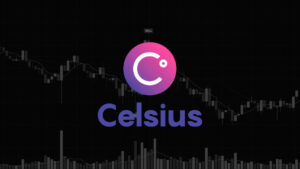The struggling Babel Finance cryptocurrency lender has suggested a new crypto project called “Babel Recovery Coin,” claiming to repay creditors with revenue generated by this new proposal after suffering a $766 million loss last year.
A recent Bloomberg report states that Yang Zhou, the co-founder and sole director of Babel, is reportedly placing his confidence in this new defi currency. He expects that doing this will end the company’s financial issue, which began when withdrawals were suspended in June 2022 after Celsius took similar measures.
The co-founder submitted a petition for protection to the Singapore court, pleading with Babel Finance’s creditors to be patient and refrain from pursuing any legal action against the lender for at least six months while the company seeks court permission for a restructuring plan.
Babel Finance to Launch Two Tokens
The concept is described as a dual token ecosystem that includes the Light Token and the fully reserved stablecoin (HOPE). Ethereum and bitcoin will support the HOPE stablecoin. It will give participants the chance to engage in arbitrage while using these two as collateral to uphold a dollar peg.
As per the plan, the proceeds from the new DeFi project incorporating Babel Recovery Coins would be used to pay off debts.

Digital-asset lenders have suffered fatal knocks as a result of last year’s crypto meltdown, which was arguably precipitated by Terraform Labs’ failure. These lenders can effectively function as unregulated banks by accepting crypto deposits and frequently trading against one another.
Leading lenders like Voyager Digital Ltd., Celsius Network, and Genesis Global were impacted by the crash and have since filed for bankruptcy.
The issues at Babel Finance, however, purportedly resulted from its proprietary trading desk utilizing client funds and building up an order book shortfall of $766 million.
Wang Li, who was dismissed as the head of Babel in December, is said to be responsible for the losses, according to the filing. It claims that Wang appears to have been the only person in charge of the hazardous trading activity.
Wang’s trading activity, according to Babel, caused losses in bitcoin (BTC), ether (ETH), and other digital assets worth $524 million that belonged to the company and its clients. Due to the company’s inability to execute multiple margin calls, counterparties had to liquidate their collateral, which resulted in additional losses of $224 million.










